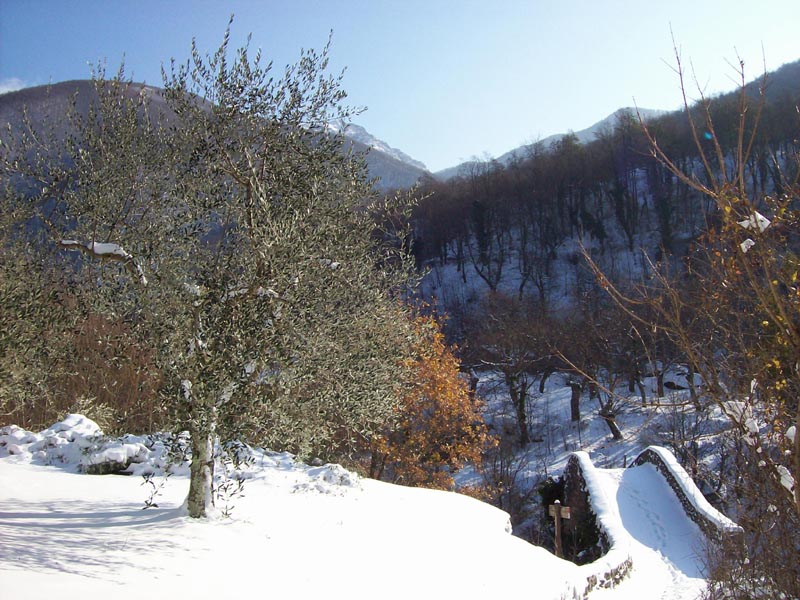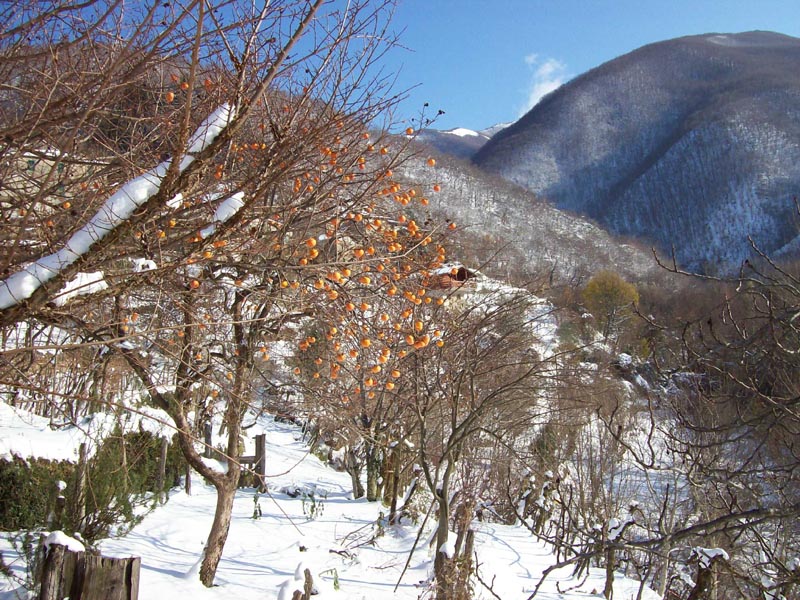In my second indovinello fotografico (photo quiz), see Indovinello Fotografico 2 , I asked you to tell me what the connection was between the picture of a flower and la Torre di Pisa (the tower of Pisa). To answer this question you need to know that the flower is called a campanula, or bellflower, and that the leaning tower of Pisa, apart from being a famous tourist attraction, is un campanile (a bell tower). Here in Italy il campanile is very commonly a separate building from la chiesa (the church), or il Duomo (the cathedral), and in fact la Torre di Pisa is at least 20 meters from il Duomo di Pisa.
For the second part of the quiz I said that a knowledge of etymology (the origins of words) would be helpful. The question was: what is the connection between la Torre di Pisa and a kennel? It will help you to know that the Italian word for ‘kennel’ is canile. If you compare this word to campanile you will see that they both share the same ending: –ile. The suffix –ile has the following function: indica un luogo destinato a contenere o custodire qualcosa (it indicates a place that is destined to contain or keep something).
Hence:
un campanile (a bell tower) is where una campana (a bell) is kept
un canile (a kennel) is where un cane (a dog) is kept
un fienile (a barn) is destined to contain fieno (hay)
un ovile (a sheep pen) is destined to contain ovini (the scientific name for pecore = sheep)
un porcile (a pig pen) is destined to contain porci (pigs)
It’s interesting to note that in English, due to its mixed linguistic roots, we use the word kennel, which comes directly from canile, and yet the inhabitant of the kennel is called a dog, which is a member of the canine (canina in Italian) species, hmm… and people say Italiano is complicated!
Now for another quick quiz. This morning I sent Geoff (mio marito), out into the snow with la macchina fotografica (the camera). He came back with about 50 photos, out of which I have chosen two: the first just to show off the beautiful landscape which we are lucky enough to live in, and the second one to challenge your knowledge of fruits! Yes now is the season for one of our favorite juicy orange fruits, examples of which you will see on the tree in the second photo. Allora, che cosa sono? (So, what are they?).
Click on the photos to enlarge them


A presto







Comments:
Vince Mooney:
Salve Serena:
Is it an “albero di limoni”?
I think you are so fortunate to live where you do.
Curious: how old is the bridge in the first picture?
Vince
Serena:
Ciao Vince, People do cultivate limoni here but they are only small trees, maximum 2 meters high, which have to be covered or brought indoors during the winter, so keep guessing!
Il ponte, which the locals call either ‘Il Ponte Romano’ (The Roman Bridge) or more poetically ‘Il Ponte della Val Scura’ (The Bridge of the Dark Valley) was actually built in 1574, and has become one of the icons of this part of Lunigiana. Our terrazza overlooks it, which always seems to impress visitors.
A presto, Serena
george:
Indovinello Fotografico…What an interesting way to discuss the etymology of the Italian language, Serena! Great job! Thank you for all of your hard work!
-George
Vince Mooney:
Salve Serena:
I am sure I have seen all these trees when I lived in Italy.
If not lemon trees, then I think they are persimmon trees (cachi).
Vince
Melissa:
Salve! Penso che siano alberi di cachi e la frutta sia la persimmon.
William Auge:
Salve Serena, sono d’accordo con il gruppo che dicono la frutta e’ persimmon.
A presto, Bill
William Auge:
Salve Serena, Io voglio augurare tu e la sua famiglia un buon Natale e un beato anno nuovo.
Auguri da William
Serena:
Yes, the fruit are called cachi, they grow abudantly here and friends are always giving us boxes of them, beati noi! They are a rather messy fruit that need to be eaten when they are really ripe and almost disintegrating. We usually cut them in half and scoop the sweet juicy pulp out with a teaspoon. Come sono buoni!
Serena
Yvonne:
Allora!! “Cachi” has a most interesting definition!! Is it because the fruit acts as a laxative?
Serena:
Salve Yvonne, Actually, if you eat cachi when they are not ripe they give you constipation!
Perhaps you are confusing caco (plural: cachi) with cacca. Check your dictionary.
Serena